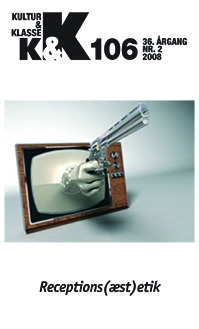Den etiske læser: Om K. E. Løgstrup og den etiske vending i litteraturteorien
DOI:
https://doi.org/10.7146/kok.v36i106.22022Nøgleord:
Den etiske læser, Om K. E. Løgstrup, etiske, vending, litteraturteorienResumé
The Ethical Reader: K. E. Løgstrup and the Ethical Turn in Literary Theory:
Literary studies have on an international level witnessed a turn to ethics in the past fifteen years, but in Denmark the ethical turn in literary theory was anticipated in the 1960s by K. E. Løgstrup, theologian and philosopher. Løgstrup worked in the tradition of phenomenology (Martin Heidegger and Hans Lipps) and explored the fundamental structures of everyday life. His basic claim was that interhuman phenomena such as trust and compassion are of an inherent and spontaneous ethical nature. Løgstrup regarded literature as a reservoir of highly elaborated case studies of human and ethical life. According to him literature could capture human experience in a concrete manner that was not possible for the conceptual systems of philosophy.
In this article Gunder Hansen summarizes Løgstrup’s position and compares it to some of the recent American studies in ethics and literary theory by James Phelan, Robert Pippin and Dorothy Hale. And he finds a great amount of compatibility between Løgstrup and the recent ethical turn.
Løgstrup furthermore developed his own theory of the reader’s emotional and existential response to the moral education presented in literature. He finds that the emotional involvement of the reader does not have an illusionary or »parasitic« nature. On the contrary, in reading we demonstrate the ethical response that would be the natural reaction to certain events in real life. However in real life we often fail to react as we should due to selfishness and pragmatic constraints. The reader’s response is, however not only spontaneous but also contains a process of reflection and general evaluation due to the exemplary artistic presentation of events in the fictional world.
At the end of the article Gunder Hansen distinguishes between two paradigms in the ethical turn, one of existentialism and one of »political correctness«. He regards the latter as problematic as it posits the reader so situated in gender, culture, minority etc. that he cannot experience self-transgression in literature but only confirmation or insult according to his norms and values.
Downloads
Publiceret
Citation/Eksport
Nummer
Sektion
Licens
Tidsskriftet følger dansk ophavsret.


